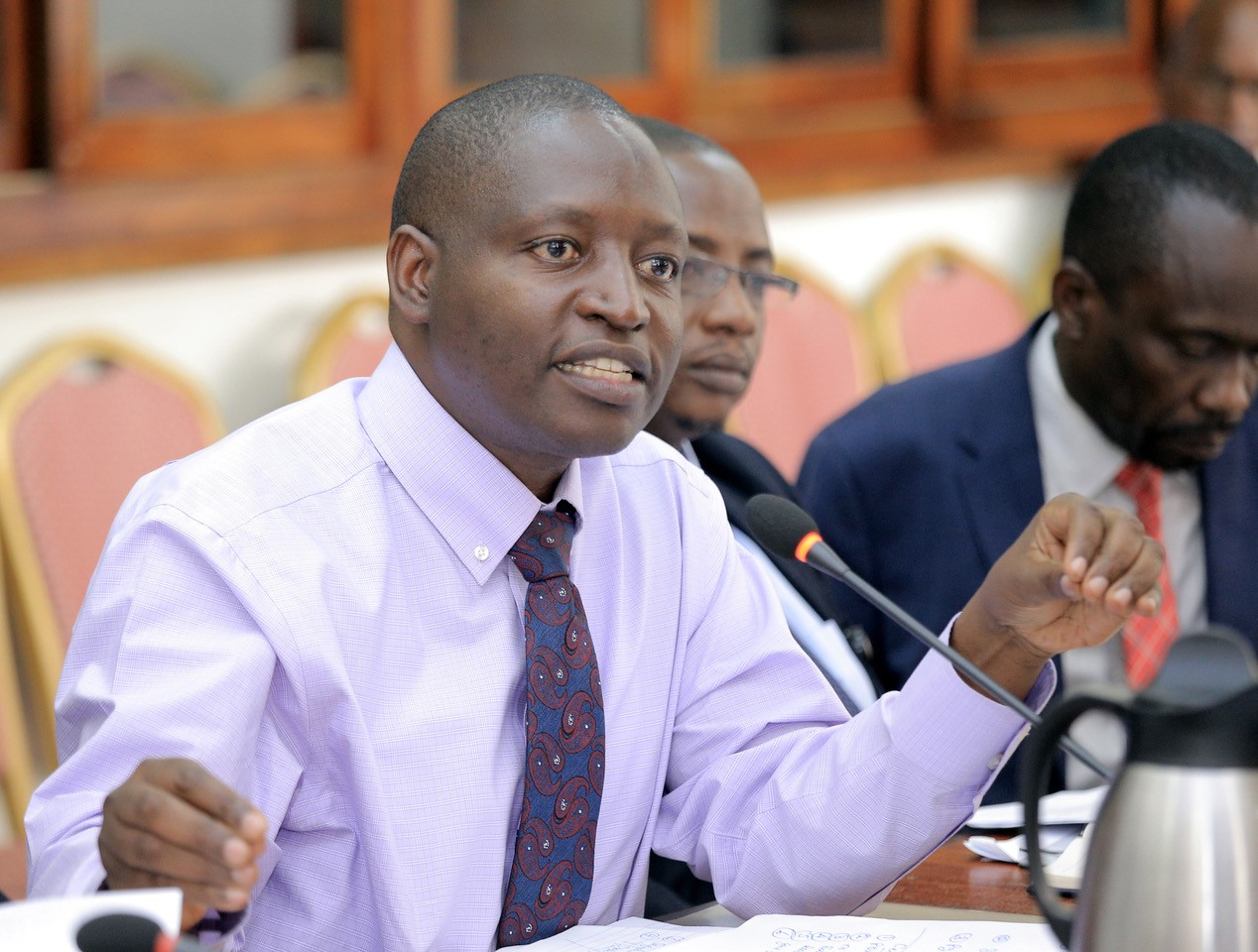Prime
Govt to sink more Shs500b into UDC

State Minister of Finance David Bahati appears before the Budget Committee at Parliament recently. PHOTO/DAVID LUBOWA .
What you need to know:
Some MPs say government is jumping onto industrialisation without the necessary infrastructure.
Government has pledged to sink more Shs500b into Uganda Development Corporation (UDC) to boost its finances.
The money will be used for value addition in coffee, Irish potatoes, salt, cocoa, tea, fruit, cotton, grain, sugar and cassava.
While presenting a statement on the floor of Parliament on Thursday, junior Trade and Industries minister David Bahati told the MPs that a readiness study has been done for agricultural, mineral and manufacturing products.
But his presentation drew sharp reactions from several MPs who accused government of making unrealistic pledges and assumptions which it has failed to implement.
Some of the MPs said government is jumping onto industrialisation without the necessary infrastructure, while others accused it of unfair taxation, high costs of production and edging out local investors in industries.
But Mr Bahati said government will boost the bank to help provide affordable and long-term financing for small and medium industries.
He said government will continue to attract foreign direct investments (FDI) play a critical role in the growth of our industrial sector.
Mr Bahati said in the last 20 years, FDI has grown from $0.03b (about Shs1.06b ) in 1989 to $1.3b (Shs4.6 trillion) in 2019.
Currently, Uganda spends up $1.3 billion on petroleum products, $400m (Shs1.4 trillion) on Iron & Steel, $300 million (Shs1.07 trillion) on Cereals and cereal preparations, $300m on medical and pharmaceutical products and $280m (Shs991b) on plastics.
Uganda spends $250m (Shs894b) on vegetable fats and oils and plans to establish an oil seed refinery with a capacity of 300,000 metric tonnes.
Uganda also spends another $120m (Shs425b) on textiles yarn, fabrics, made- up articles, and related products and another $90m (Shs318b) on salt yet it has salt resources in Lake Katwe amounting to 22.5 million tonnes of crystalline salts. A total of $70m (Shs247b) is spent on fertilisers, $85 million (Shs300b)goes to veterinary drugs and finally starch costs $350m (Shs1.2 trillion) in imports.
Impact of Covid-19
Minister Bahati said the Covid-19 pandemic has had a huge impact on the industrialisation in the country, noting that prior to the pandemic, the Gross Domestic Product (GDP) growth rate was at 6.5percent and that industry was the main driver of this growth, expanding at a rate of 10.8 percent; followed by Agriculture (5 percent) and Services (4.9 per cent).
“Our total import bill stood at $7.3 billion in 2019. It is important to note that most of these items that we import can be manufactured domestically,” he said.
Mr Bahati said the manufacturers are diversifying into many new products such as industrial refined sugar, ethanol, sanitizers, masks, casein and powdered milk, medical oxygen and steel products, among others.
“Production of manufactured goods has increased, for instance, sugar production is at 540,000 metric tons, with consumption at 380,000 metric tonnes and surplus at 190,000 metric tonnes; Cement has reached 8m metric tonnes. Steel production recorded 219,194 metric tonnes in 2020,” he said.
“For example, we can now produce ceramic tiles, assemble mobile phones, and produce fabrics for export, etc. The number of industries has increased from 81 units in 1986 to more than 5,200 units in 2020 and the manufacturing sector employs over one million direct workers,” he added.
Geoffrey Solo Kayemba, the Bukomansimbi South MP, said: “The problem we have here is that we have many foreigners who do not even pay taxes, and underpay workers. This does not favour the local investors who have also put up some industries. All they face is over taxation and in the long run are driven out of business. Government should favour and give incentives to the local investors because they help Ugandans.”
MPs react
Gilbert Olanya, Kilak South MP, said: ‘‘I would like the minister to tell us the plans for government in balancing industries in the country. If you are to take stock of this country, there are regions that do not even have a single industry. For example, the whole of Acholi, apart from the current sugar factory.’’
Ibrahim Semujju Nganda, the Kira Municipality MP, said: “Part of Namamve Industrial Park is in my constituency and it is dust. The first money we passed for the industrial park in Namamve was ‘eaten’ and you know who ‘ate’ it. People have put up very serious factories and they are living in dust. You are only doing roads where you sleep. Where is the priority?’’




